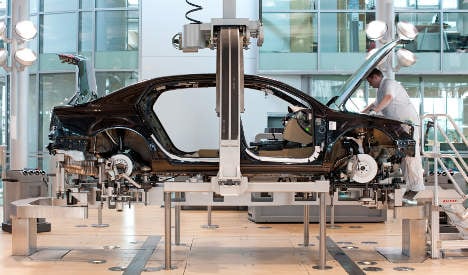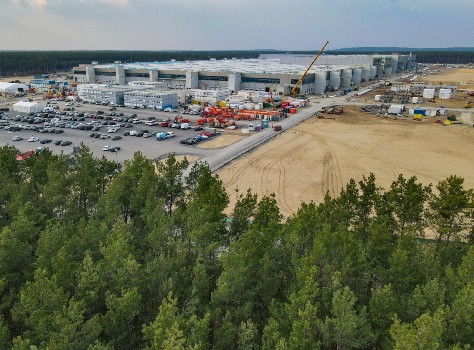In the seven-month period from January through July, the VW group sold more than four million vehicles, the first time it has made that many, it added.
“After a very successful first six months we got off to a good start in the second half of the year,” VW sales director Christian Klingler said in a statement.
But the 12-month increase in July was off the pace of the preceding six months and Klingler said beating the competition in the coming months “will be a challenge, given an operating environment that is again becoming difficult.”
VW also would not regain this year the levels seen prior to the global economic crisis, Klinger said.
The group’s fortunes mirror those of Germany as a whole as Europe’s biggest economy posted stellar second quarter growth of 2.2 percent on Friday, in part owing to strong auto exports.
It was the country’s best quarterly result since east and west Germany were reunified in 1990.
By 2018, VW, which also owns the Audi, Lamborghini, Porsche, Seat and Skoda brands among others, aims to surpass Toyota as the world’s biggest automaker.
A key part of the plan is China, the group’s biggest market and where deliveries in the first seven months of the year jumped 42.2 percent to 1.11 million.
For Asia as a whole, VW posted growth of 42.3 percent to 1.23 million units.
A breakdown of the seven-month results showed the VW brand was still the biggest by far, with sales of 2.62 million passenger cars, an increase of 14 percent.
Audi, which provides the lion’s share of VW profits, saw a 17.4 percent hike in sales to 646,300 vehicles and “reached new delivery records” in China and the United States.
Even the group’s weakest brand Seat reported a 2.3 percent increase in sales that included a “very gratifying” increase in its home market of Spain.
In VW’s domestic market, group sales slumped 29 percent, however, with weak deliveries “strongly influenced by the effects of the scrapping premium last year” that had given business a shot in the arm.
Western Europe excluding Germany saw sales gain 18.4 percent to 1.15 million vehicles.



 Please whitelist us to continue reading.
Please whitelist us to continue reading.
Member comments